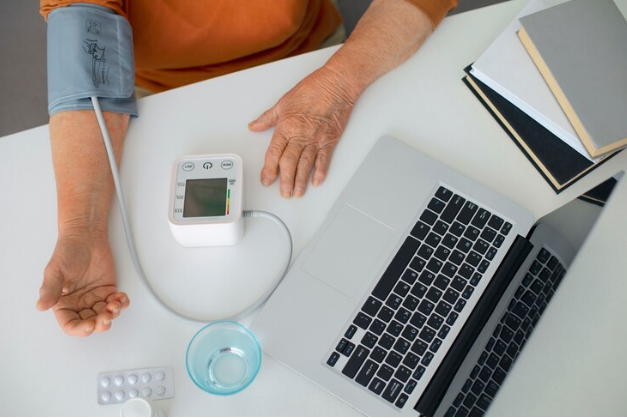Blood pressure is a crucial indicator of overall health, directly tied to heart health and the risk of cardiovascular events. Many people are unaware that blood pressure varies naturally throughout the day due to several factors. Understanding when blood pressure tends to be highest can help individuals monitor and manage it more effectively, lowering the risk of complications.
Understanding Blood Pressure Variability
Blood pressure is composed of two values: systolic, the pressure when the heart beats, and diastolic, the pressure when the heart rests. Throughout the day, blood pressure can fluctuate due to factors such as age, physical activity, lifestyle, and even diet. Knowing what can influence these natural variations helps people make better health decisions and adopt preventative measures.
Diurnal Patterns of Blood Pressure: The Circadian Rhythm
The body follows a 24-hour cycle known as the circadian rhythm, which affects many biological processes, including blood pressure. Blood pressure typically rises in the morning, reaches its peak mid-morning, gradually decreases in the afternoon, and dips to its lowest levels at night during sleep. This cycle is a natural, protective mechanism designed to adapt to daily activities and rest patterns.
When Blood Pressure is Highest: The Morning Surge
For many people, blood pressure peaks in the morning shortly after waking. This phenomenon, known as the “morning surge,” results from a combination of hormonal changes that help prepare the body for the day’s activities. For instance, hormones like cortisol and adrenaline increase, triggering a rise in blood pressure. Additionally, transitioning from a resting state to an active state contributes to this surge. This morning increase is more pronounced for individuals with hypertension and can indicate a higher cardiovascular risk.
Factors that Can Exaggerate Morning Blood Pressure
Certain factors can intensify the morning blood pressure surge, such as aging and preexisting hypertension. Conditions like sleep apnea can also exacerbate this rise. The morning spike is significant as it’s associated with increased cardiovascular risk, especially if it is notably higher than typical levels.
High Blood Pressure in Other Parts of the Day
While blood pressure peaks in the morning for most, various situations can cause it to rise at other times. Physical exertion, emotional stress, or consuming high-sodium foods can lead to temporary increases. Many people may also experience spikes in blood pressure later in the day due to afternoon stress, fatigue, or lifestyle factors such as diet.
Monitoring Blood Pressure
Regular monitoring, especially during the morning hours, is essential to gauge blood pressure patterns accurately. Tracking blood pressure over time can reveal valuable insights into individual trends and help in making lifestyle or medication adjustments. Using a home blood pressure monitor allows people to check their levels consistently and identify significant variations that may require attention.
Managing Blood Pressure Fluctuations
Various lifestyle changes can help stabilize blood pressure. Adopting a balanced diet low in sodium, regular physical activity, and stress-management techniques like meditation are all beneficial. Good sleep is also critical, as quality rest can prevent intense morning blood pressure surges. Consulting healthcare professionals for tailored advice can ensure that individuals at risk for high morning blood pressure receive proper care and guidance.
FAQs: Blood Pressure Peaks and Fluctuations
This section provides answers to common questions, such as the reasons behind higher morning blood pressure and how to manage it. It also covers the effects of age, medication, and potential afternoon blood pressure peaks, helping to clarify many misconceptions and providing practical tips for managing blood pressure throughout the day.
Conclusion
The article emphasizes that while daily blood pressure fluctuations are normal, it’s important to be aware of the typical peak in the morning. Regular checks and appropriate lifestyle modifications are key to managing blood pressure effectively. For those concerned about their blood pressure levels, Archana Rathi Clinic offers specialized services in blood pressure monitoring and cardiovascular care, making it easier to manage this vital health factor.



